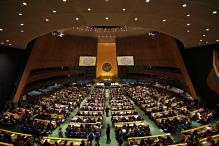Organized crime has boomed over the past 20 years, with transnational criminal markets thriving across a range of sectors, from narcotics and arms trafficking to human trafficking and environmental crime. In conflict-affected states, organized crime can function as a "spoiler," undermining peace processes and state capacities, delegitimizing governments and driving instability and violence. Addressing organized crime is of particular importance for peace operations and other peacebuilding endeavours.
This research project explores past multilateral efforts for responding to transnational organized crime in conflict-affected and fragile states. The research project comprises two country case studies, considering the impact of transnational organized crime and trafficking in the Central African Republic and in Mali, as well as a policy brief considering these dynamics at a global level.
The global Policy Brief takes stock of past multilateral efforts to counter transnational organized crime and considers future directions for a more concerted and effective response.
The case study on Mali explores the counter-crime activities of the United Nations Multidimensional Stabilization Mission in Mali (MINUSMA) as well as the challenges faced by other multilateral actors and initiatives.
The case study on the Central African Republic advances several recommendations to improve multilateral interventions which have tended to lack an overarching strategy and ability to prioritize.




